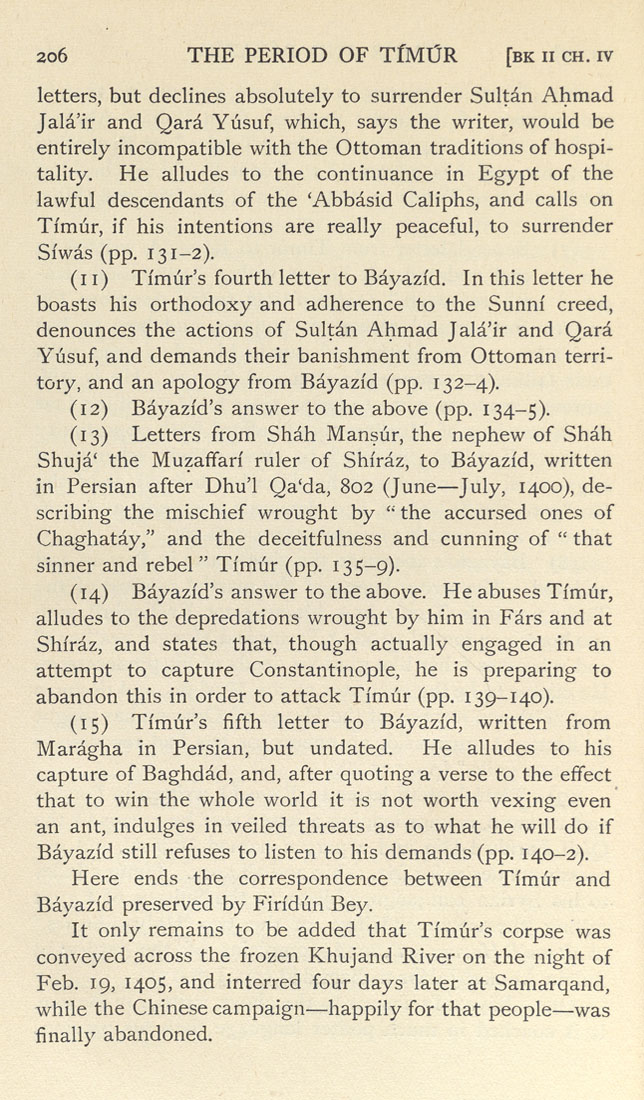2o6 THE PERIOD OF TfMlJR [bk ii ch. iv
letters, but declines absolutely to surrender Sultan Ahmad
Jala'ir and Qara Yusuf, which, says the writer, would be
entirely incompatible with the Ottoman traditions of hospi¬
tality. He alludes to the continuance in Egypt of the
lawful descendants of the 'Abbasid Caliphs, and calls on
Timur, if his intentions are really peaceful, to surrender
Siwas (pp. 131-2).
(11) Timur's fourth letter to Bayazid. In this letter he
boasts his orthodoxy and adherence to the Sunni creed,
denounces the actions of Sultan Ahmad Jala'ir and Qara
Yusuf, and demands their banishment from Ottoman terri¬
tory, and an apology from Bayazid (pp. 132-4).
(12) Bayazid's answer to the above (pp. 134-5).
(13) Letters from Shah Mansur, the nephew of Shah
Shuja' the Muzaflari ruler of Shiraz, to Bayazid, written
in Persian after Dhu'l Qa'da, 802 (June—July, 1400), de¬
scribing the mischief wrought by '' the accursed ones of
Chaghatay," and the deceitfulness and cunning of " that
sinner and rebel" Timur (pp. 135-9).
(14) Bayazid's answer to the above. He abuses Timur,
alludes to the depredations wrought by him in Fars and at
Shiraz, and states that, though actually engaged in an
attempt to capture Constantinople, he is preparing to
abandon this in order to attack Timur (pp. 139-140).
(15) Timur's fifth letter to Bayazid, written from
Maragha in Persian, but undated. He alludes to his
capture of Baghdad, and, after quoting a verse to the effect
that to win the whole world it is not worth vexing even
an ant, indulges in veiled threats as to what he will do if
Bayazid still refuses to listen to his demands (pp. 140-2).
Here ends the correspondence between Timur and
Bayazid preserved by Firidun Bey.
It only remains to be added that Timur's corpse was
conveyed across the frozen Khujand River on the night of
Feb. 19, 1405, and interred four days later at Samarqand,
while the Chinese campaign—happily for that people—was
finally abandoned.
|








